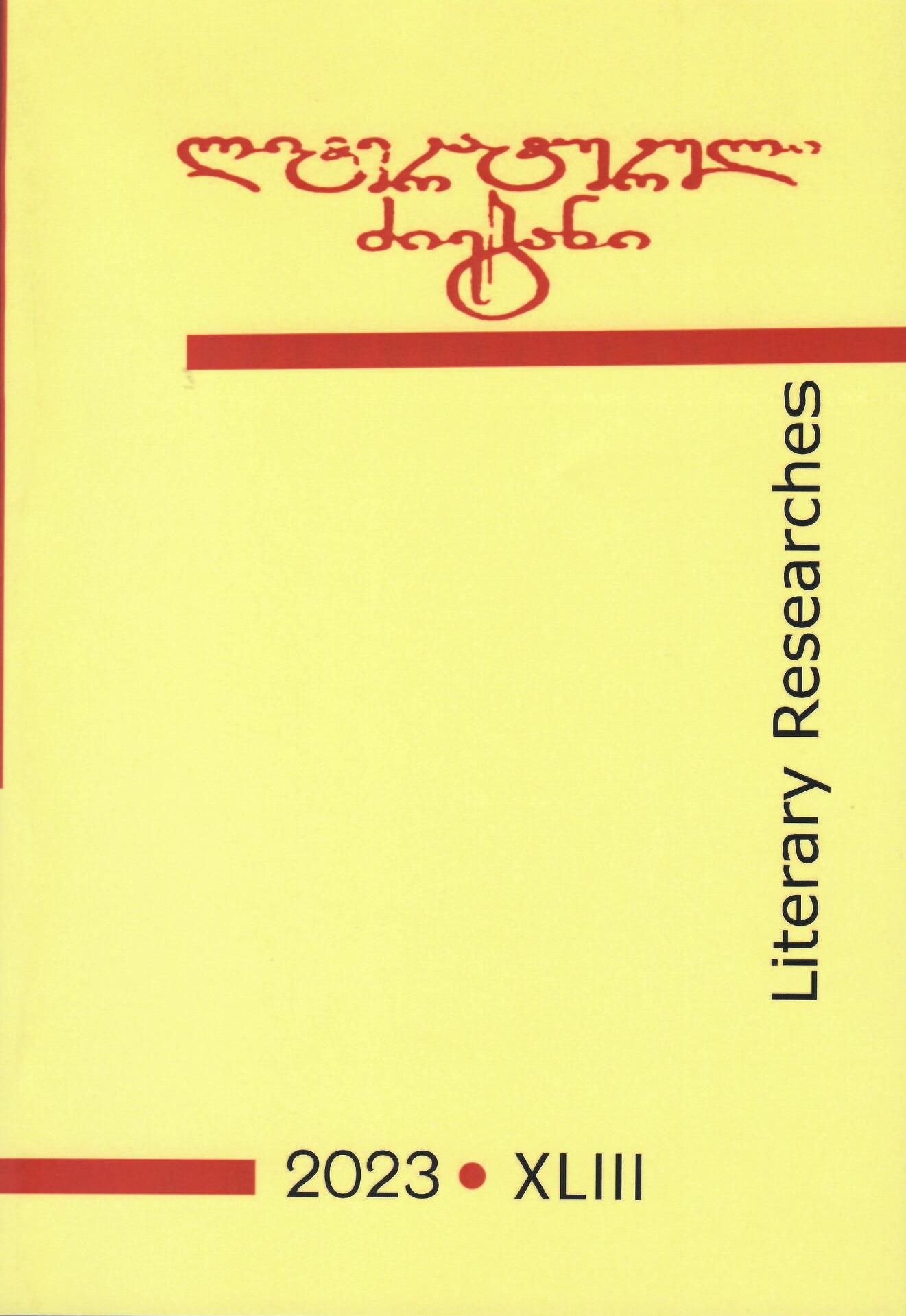Published 2023-12-14
Keywords
- Georgian literature,
- Georgian Criticism,
- Georgian Journalism,
- Aleksandre Tsagareli
How to Cite
Abstract
Aleksandre Tsagareli is one of the prominent figures among the Kartvelologists of the nineteenth century. The scholar working at the University of St. Petersburg is more famous for his linguistic and archeographical works, although his contribution as a critic of Georgian literature of the nineteenth century should not be forgotten. It is true that his critical heritage is not extensive, but it is noteworthy for the history of Georgian literary criticism.
In 1870, Alexandre Tsagareli published in the newspaper “Droeba” (No. 2-7) an extensive cycle of articles “Our Unfortunate Literature in this Century”, which, although it is mainly aimed at discussing the work of Ilia Chavchavadze, at the same time offers an interesting characterization of Georgian literature of the nineteenth century, before Ilia Chavchavadze .
Aleksandre Tsagareli is one of the first in Georgian reality to discuss the relationship between cosmopolitanism and nationalism based on literature and art. He takes the completely correct point of view that the work of art will gain a universal, cosmopolitan meaning when it is deeply national in nature. Nationality of culture not only hinders its cosmopolitanism, but on the contrary, without it it is completely unattainable.
Alexandre Tsagareli is the first Georgian critic who periodizes the Georgian literature of the nineteenth century based on a certain conceptual basis. He distinguishes three main stages of the development of new Georgian literature and discusses the main representatives of these periods.
In spite of numerous disputed provisions, Alexandre Tsagarli’s critical observations on the new Georgian literature are noteworthy for many reasons. The main merit of his cycle of letters is that the author tries to understand Georgian literature of the nineteenth century as a systematic process, which is evidenced by the periodization of the literature proposed by him. The views of the critic about the genesis and artistic form of the work of Alexandre Chavchavadze, Nikoloz Baratashvili, Giorgi Eristavi, Ilia Chavchavadze later became a creative impetus for many researchers.

